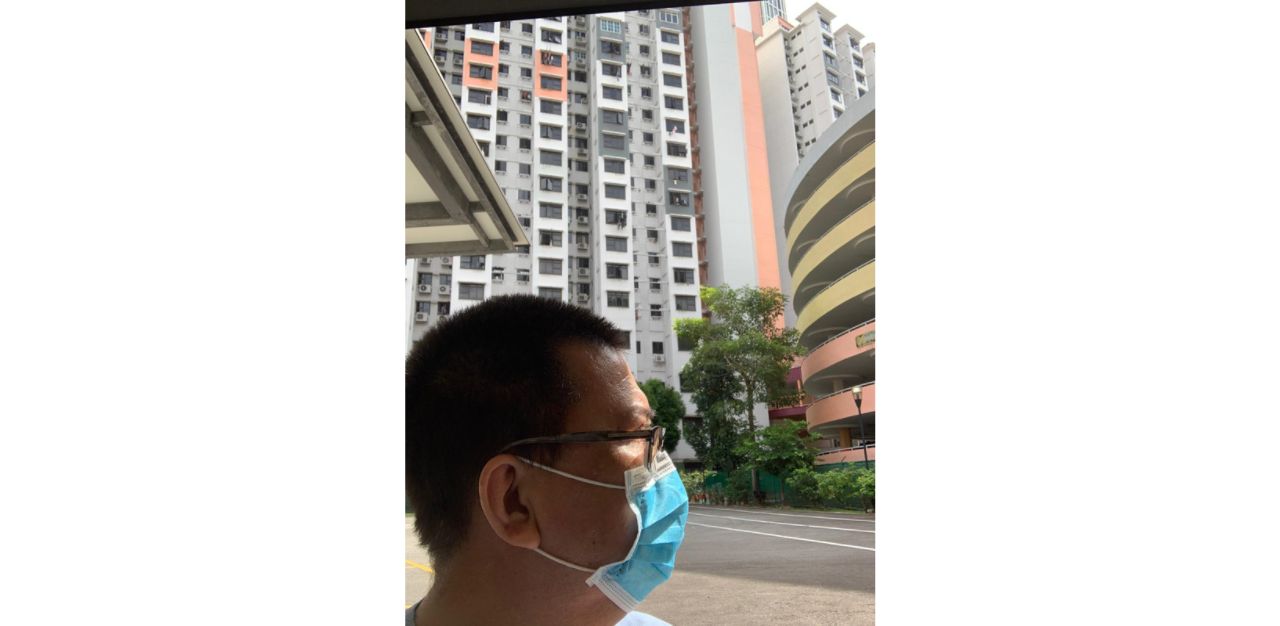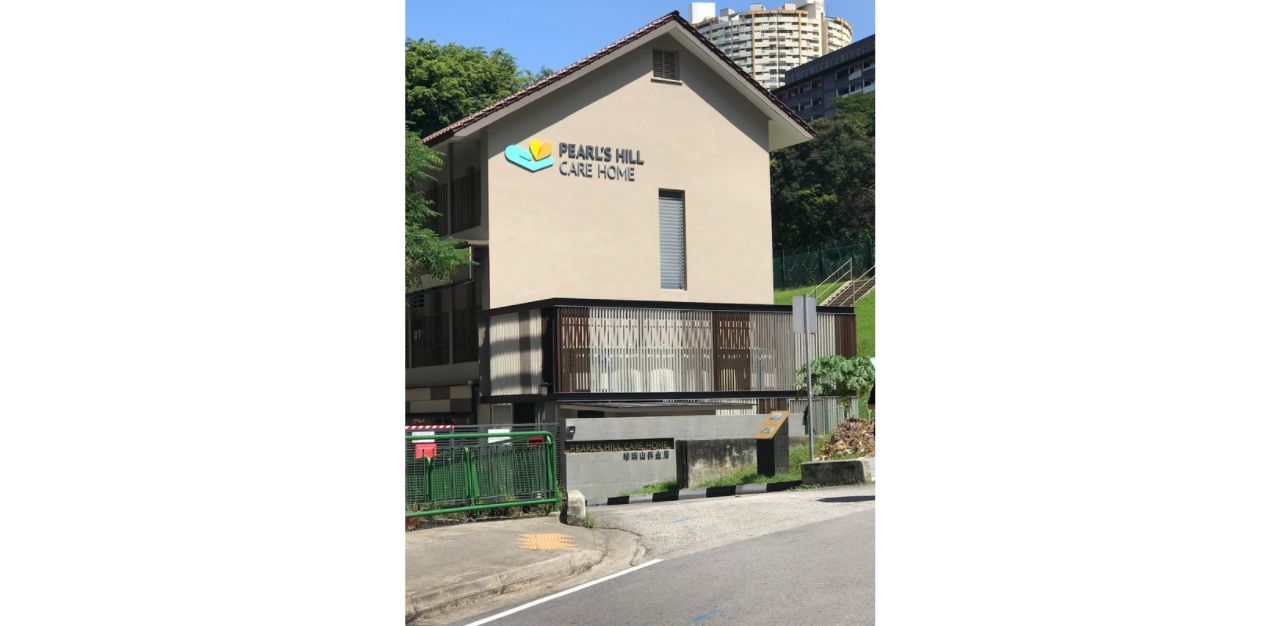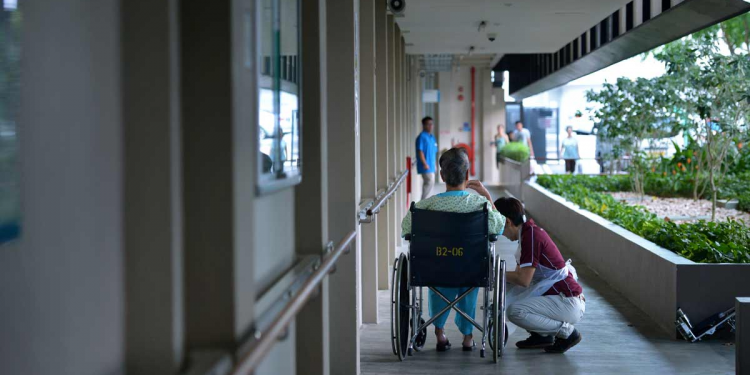Mr Vincent Low, 56, has been recuperating at the Pearl’s Hill Care Home for the past two years to undergo therapy after a surgery to treat a genetic spine disorder. Initially bedridden, the father of two children has since “achieved a new level of fitness” and is now able to move around in a wheelchair and walk with the help of a walking frame and an assistant nearby.

Feeling that he is well enough, Mr Low is looking forward to spending the festive period with his family but the authorities threw a spanner in the works.
On 21 January, the Ministry of Health (MOH) announced that all in-person visits to hospital wards and residential care homes would be suspended from 24 January to 20 February. This would include the entire 15 days of the Chinese New Year celebrations.
As a resident in a care home, Mr Low has a second option: Home leave, where residents or their families apply for the resident to leave the care homes for a few days to spend time with their loved ones at home. This has always been a popular choice for many families, especially during festive periods.
To his shock and disappointment, Mr Low’s request was immediately rejected. He says this is the first year he is missing spending Chinese New Year with the family. He had managed to get home leave for three days last year.
Chinese New Year is a time of festive reunion for families, but the Omicron wave has impeded that hope for those living in care homes and their families.
TheHomeGround Asia learnt after calling several senior and convalescent homes that even the home leave scheme has been suspended.

A staff at Pearl’s Hill Care Home told TheHomeGround Asia that there was an “internal message from the management” that all home leave applications are suspended until further notice. Although he declined to share details, he said the message “was based on MOH’s instructions”.
But a staff at its sister care home in Tampines said home leave is “discouraged” by the home’s management because returning residents would have to be isolated for 14 days before they can go back to their respective wards and that the long period of isolation may be detrimental to the mental health of the residents.
He said care homes have limited capacity to accommodate residents in isolation. Also, there is the risk of the residents themselves contracting Covid-19 while on home leave. This is why the care home decided to dissuade families from taking their loved ones out for reunion leave.
A Ren Ci Nursing Home spokesperson said it is under management’s instructions that residents are not allowed to return home for Chinese New Year.
Home leave was similarly suspended at both Sree Narayana Mission and Orange Valley Nursing Homes. When asked if it was based on instructions from the authorities, the spokesperson at Sree Narayana Mission could not confirm this and Orange Valley said it was to a directive from the Agency of Integrated Care (AIC), an agency under MOH Holdings.
When contacted, AIC said it does not issue any directive to care homes.
MOH told TheHomeGround Asia that it has not placed any restrictions on home leave nor has it instructed the homes to do so. Rather, these care homes have “the autonomy to decide whether or not to grant the applications”.
For Mr Low, the explanation was cold comfort. His frustration is evident as he says: “The end goal of care homes was to prepare for my eventual return home”, and not to block his requests to do so when his physical condition is well enough. With 88 per cent of Singapore’s total population having completed their vaccination and Mr Low himself is vaccinated and given the booster shot, he is now left wondering, “Am I missing something?”
Join the conversations on TheHomeGround Asia’s Facebook and Instagram, and get the latest updates via Telegram.












